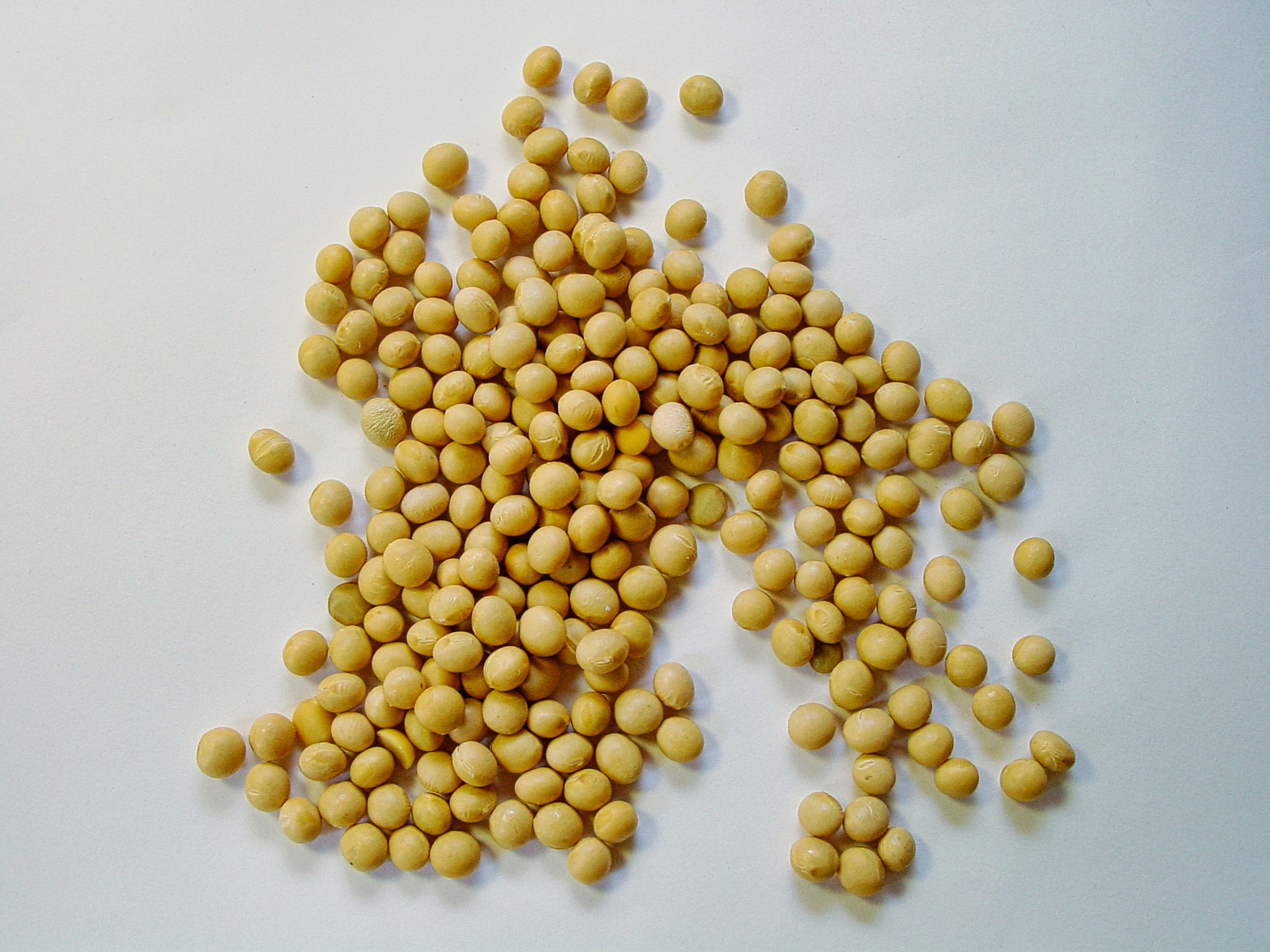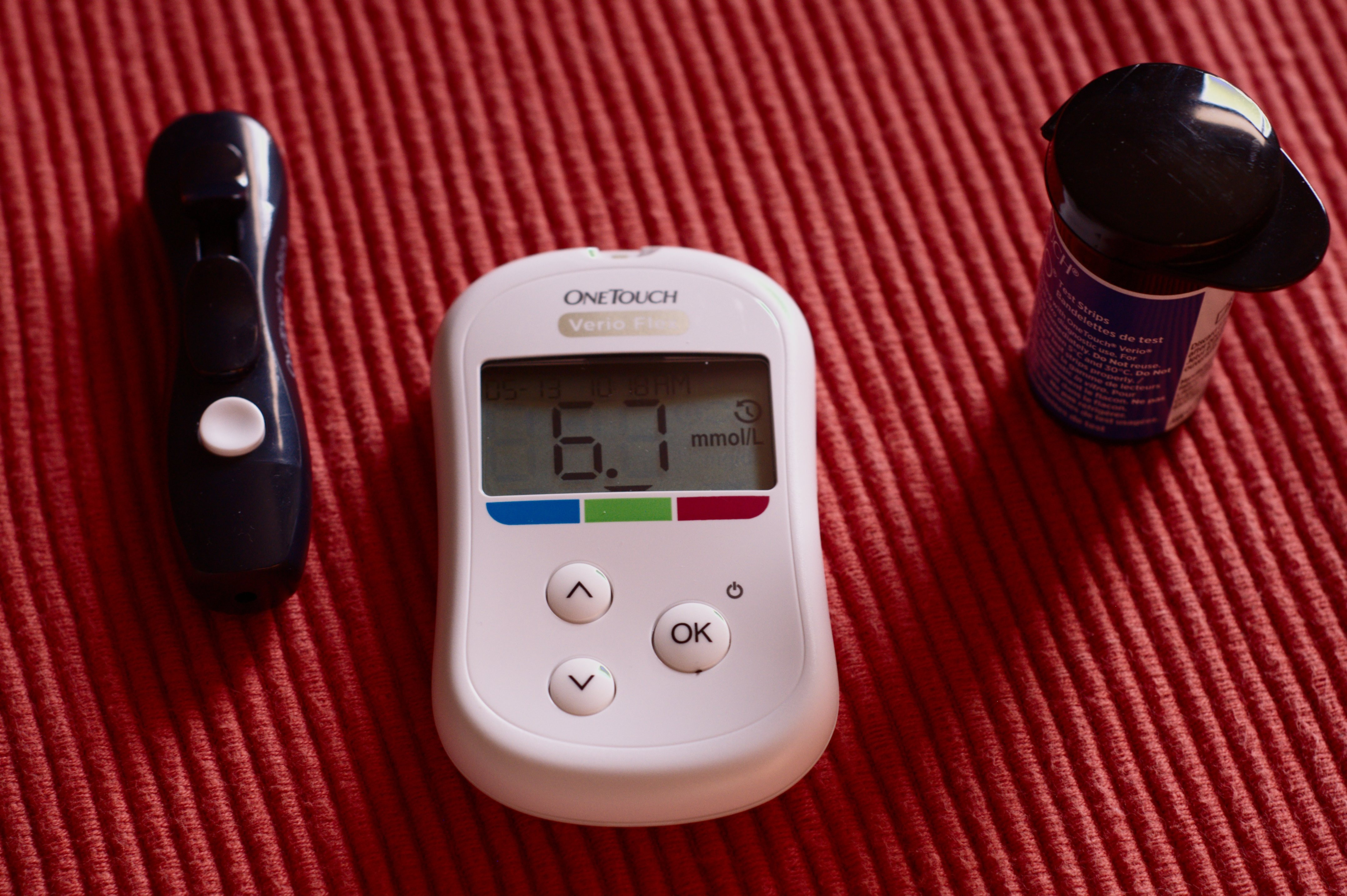Vegan Globetrotter is supported by our audience. When you purchase through one of our links, we may earn a small affiliate commission. As an Amazon Associate I earn from qualifying purchases. Your cost is not affected.
==================
Soy benefits, heralded for centuries in Asian diets, have garnered global acclaim for their remarkable impact on health. This protein-rich legume, a dietary cornerstone in Asian cultures, is now gaining widespread recognition for its exceptional nutritional profile. Brimming with essential amino acids, soy stands as a complete protein source rivaling traditional meat options. Its versatility extends beyond protein, offering a rich array of vitamins, minerals, and bioactive compounds, including isoflavones, which have been extensively studied for their potential in disease prevention and health promotion. Whether enjoyed as tofu, edamame, soy milk, or tempeh, soy proves to be a convenient and health-conscious addition to various dietary preferences.
Soy Benefits: Unveiling the Nutritional Marvels of this Protein-Rich Legume

There are several soy benefits to health. Soy, a protein-rich legume, has been a staple in Asian diets for centuries and is increasingly embraced across the globe for its nutritional benefits. High in essential amino acids, it stands out as a complete protein source comparable to meat. Beyond protein, soybeans offer an array of vitamins, minerals, and bioactive compounds like isoflavones, which have been studied for their role in disease prevention and health promotion. With its versatility, soy can be consumed in various forms, including tofu, edamame, soy milk, and tempeh, making it a convenient addition to various dietary choices.
Soy Benefits: a Quick Overview
As research on soy’s health impacts has evolved, it has been recognized for its potential positive effects on cardiovascular health partly due to its ability to reduce low-density lipoprotein (LDL) cholesterol. Additionally, the phytoestrogens in soy, which mimic the hormone estrogen, may help manage menopausal symptoms and offer protective effects against certain cancers. The fiber content in soy also supports digestive health and aids in blood sugar regulation, which is beneficial for weight management and metabolic health. However, It is important for individuals with soy allergies or sensitivities to approach soy consumption cautiously.
Key Takeaways on Soy Benefits
- Soy is a complete protein offering a rich nutrient profile supporting various health aspects.
- Consumption of soy may contribute to cardiovascular health, cancer prevention, and menopausal symptom relief.
- Soy includes components that can assist in weight management, digestion, and blood sugar stability.
Nutritional Profile of Soy to Know Soy Benefits

Photo by Thomas Kinto on Unsplash
Soy is a nutritionally dense food, offering a rich profile of macronutrients, essential vitamins and minerals, and beneficial phytochemicals. It serves as a versatile source of nutrition in many diets worldwide.
Soy Benefits: Macronutrients in Soy
Soybeans boast a balanced composition of macronutrients. For every 3.5 ounces (100 grams) of boiled soybeans, there are 172 calories. This includes about 18.2 grams of protein, which makes it a complete protein source, containing all nine essential amino acids the body requires. The fat content is around 9 grams, primarily healthier unsaturated fats. Carbohydrates account for 8.4 grams, a substantial part of dietary fiber, amounting to 6 grams.
Vitamins and Minerals in Soy
Soybeans are also an essential source of various vitamins and minerals. They are particularly rich in B vitamins, potassium, and magnesium. Additionally, soy provides a notable amount of iron, crucial for oxygen transport in the body, and zinc, which supports immune function. These nutrients support overall health and wellness when included as part of a balanced diet.
Phytochemicals in Soy
Phytochemicals are compounds produced by plants that have health benefits. Soy contains isoflavones, a class of phytochemicals that act as antioxidants and may have various beneficial effects on health. These isoflavones, such as genistein and daidzein, have been studied for their potential role in reducing the risk of certain diseases, including heart disease and osteoporosis.

Photo by Ali Hajiluyi on Unsplash
Cardiovascular Health Benefits
Soy has been recognized for its role in enhancing cardiovascular health, specifically through the mechanisms of cholesterol reduction and blood pressure management.
Cholesterol Reduction
Soy contains isoflavones and soluble fiber, which help lower low-density lipoprotein (LDL) cholesterol, often called “bad cholesterol.” Incorporating soy into one’s diet can lead to a modest reduction in cholesterol levels. The American Heart Association Science Advisory notes the positive impact of soy protein on cardiovascular health, corroborating the cholesterol-lowering benefits of soy products.
Blood Pressure Management
Including soy in a diet can also contribute to better blood pressure control. Soybeans are rich in polyunsaturated fats and contain potassium, both of which can aid in maintaining healthy blood pressure levels. A narrative by Dr. Martin Juneau on MyHeart.net emphasizes how the nutrients in soy support heart and vessel health, including through the management of blood pressure.
Cancer Prevention and Management
Soy consumption has been scrutinized in cancer research, with a particular focus on its potential role in reducing the risk of certain cancers and affecting overall cancer management.
Breast and Prostate Cancer
Studies suggest that soy foods may offer protective benefits for both breast cancer and prostate cancer. The presence of isoflavones, plant-derived compounds with estrogen-like properties, in soy is thought to play a vital role in this protective effect. For example, the Cancer Nutrition Consortium discusses reducing risk related to these types of cancers with soy intake. Some research shows a correlation between soy consumption and a lower risk of developing breast and prostate cancer. However, it’s important to note that while evidence points towards a positive link, definitive conclusions await further studies.
Antioxidant Properties
Soy’s antioxidant properties are also significant in cancer prevention and management. Antioxidants are known to combat oxidative stress, which can damage cells and is linked to cancer development. Soy contains several antioxidants, such as vitamin E and selenium, which help protect cells from this damage. The American Institute for Cancer Research has information about soy and cancer. It suggests that soy intake is not associated with increased breast cancer risk and may have a beneficial role due to its antioxidant content.
Individuals must discuss dietary choices with their healthcare providers, especially in the context of cancer prevention and management.
Bone Health
Soy consumption plays a significant role in maintaining bone health, particularly in calcium absorption and bone density improvement, essential to preventing osteoporosis.
Calcium Absorption
Soy foods can enhance the body’s ability to absorb calcium, essential for building and maintaining strong bones. This is particularly true for fermented soy foods and products fortified with calcium, making them an excellent option for individuals looking to improve their calcium uptake.
Bone Density Improvement
Regular soy intake has been associated with improved bone mineral density (BMD). A study indicates that eating five or six prunes a day helped postmenopausal women preserve bone mineral density in their hips, which could reduce bone fractures. These findings suggest that incorporating whole soy foods into one’s diet could contribute similarly to bone health, as soy is rich in isoflavones, which positively affect bone density. However, consuming soy foods as part of a balanced diet is crucial to see these benefits.
Menopausal Symptom Relief
Soy is a noteworthy consideration for women experiencing menopausal symptoms. Isoflavones, a class of compounds found in soy, are known to have phytoestrogenic properties, which means they can mimic the activity of estrogen in the body to some extent. Here’s how soy may offer relief from specific menopausal symptoms:
- Hot Flashes: Research has indicated a correlation between soy isoflavones and reduced severity and frequency of hot flashes.
- Sleep Disturbances: Soy’s potential influence on thermoregulation and hormonal balance may help mitigate sleep interruptions often accompanying menopause.
- Vaginal Health: Isoflavones in soy might assist in maintaining vaginal health by imitating estrogen’s effects, which can wane during menopause.
Evidence and Recommendations
Menopausal women have taken an interest in soy due to its benefits and nonhormonal nature, especially when hormone replacement therapy is not an option. The North American Menopause Society discusses nonhormone therapies for menopause and how soy might fit into the management of symptoms.
Dietary Sources
Consumption of soy can come from a variety of foods:
- Tofu
- Soy milk
- Edamame
- Soy nuts
Research Findings
It’s important to note that studies on the effectiveness of soy isoflavone in alleviating menopausal symptoms have had mixed outcomes. While some findings show beneficial effects, others do not find a significant difference, underscoring the variability in individual responses to soy isoflavones.
Weight Management Benefits

Soybeans provide a rich source of protein, which is beneficial for weight management. High-protein diets can increase feelings of fullness and may reduce the risk of hunger, leading to a lower overall calorie intake. Studies have shown that proteins like those found in soy can exert comparable effects to other protein sources on appetite profile, energy metabolism, and subsequent energy intake.
Regarding nutritional content, soybeans contain significant amounts of soluble and insoluble fiber. Fiber aids in weight management by slowing digestion and increasing satiety. A diet that includes foods with high fiber content, such as soy, can help manage weight effectively.
Soy products often have lower saturated fats than animal-based protein sources. Diets with lower saturated fat content support weight management and can improve cardiovascular health. Replacing animal proteins with soy-based options can be a smart strategy for maintaining or reducing weight.
Additionally, incorporating soy into the diet can provide a healthy replacement for higher-calorie or less nutritious foods. As a plant-based protein, soy is a versatile ingredient that can help individuals regulate their weight while contributing beneficial nutrients to a balanced diet.
By considering these factors, individuals can leverage the weight management benefits of soy as part of a healthy lifestyle.
Soy Benefits on Digestive Health
Soybeans possess a variety of components that support digestive health. One significant element is their fiber content. The fiber in soybeans is mostly insoluble, which aids in adding bulk to stool and promoting regular bowel movements.
Key Nutrients:
- Fiber: Soy contains approximately 6 grams of fiber per serving, contributing to healthy digestion.
- Proteins: Soy proteins may help regulate gastrointestinal functions.
In addition to aiding digestion through fiber, soy also contains oligosaccharides such as stachyose and raffinose. These are sugars that the human body cannot digest fully. They may help promote the growth of beneficial bacteria in the gut, which is essential for maintaining a healthy intestinal microbiome.
Isoflavones, a type of phytoestrogen found in soy, have been observed to contribute positively to gut health. However, I would like to point out that the impact of isoflavones can vary among individuals.
Benefits:
- Bacterial Growth: Oligosaccharides in soybeans foster the growth of beneficial gut bacteria.
- Bowel Health: The fiber in soybeans enhances stool bulk and regularity.
Moreover, studies, such as one published by the National Center for Biotechnology Information, indicate soy’s potential to benefit overall gastrointestinal health. The consumption of soy protein may be linked with slight reductions in blood pressure among individuals with hypertension, suggesting that soy may have positive secondary effects on circulatory health, impacting the digestive system indirectly.
Consumers are advised that soy is safe to include in their diets, barring any specific allergies. It is recognized as an essential source of plant protein, making it a valuable food for digestive wellness.

Regulation of Blood Sugar
Soybeans may be beneficial in managing blood sugar levels, particularly for those with or at risk for type 2 diabetes.
Diabetes Risk Reduction
Incorporating soy into one’s diet has been associated with a reduction in the risk of developing type 2 diabetes. Studies suggest that eating soy protein containing isoflavones can influence insulin sensitivity. For instance, males with type 2 diabetes showed improved markers related to blood sugar control after consuming soy protein with isoflavones for three months.
Glycemic Control
Including whole soybeans in the diet has been shown to offer better glycemic control. This is because soy protein can directly affect blood glucose levels. The consumption of soybean products as part of a diabetic diet has demonstrated a propensity to control blood glucose effectively. Additionally, the antioxidant activity present in soybeans may enhance glycemic control by contributing to the overall antioxidant defense system within the body.

Immune System Enhancement
Soy contains compounds that may support the immune system. This section highlights how incorporating soy products into one’s diet can enhance immune function.
Isoflavones, a type of phytochemical found in soybeans, exhibit anti-inflammatory and antioxidant properties. These compounds play a role in modulating the immune system, providing a protective mechanism against certain diseases. A review of fermented soy products suggests that these foods can reduce chronic disease and the risk of breast cancer due to their potential anti-inflammatory effects.
The inclusion of soy in the diet has been linked to the regulation of intestinal inflammation. Preclinical studies indicate that soy-derived bioactives, like isoflavones, can mitigate inflammatory changes in the gut, which is a crucial component of the body’s immune defense.
Soy also contributes to gut health by fostering a beneficial environment for gut microbiota. A healthy gut microbiome is vital for a robust immune response, and soy-derived phytochemicals may have favorable effects on these beneficial bacteria.
Bioactive Component Potential Immune Benefit Isoflavones Anti-inflammatory, Antioxidant activity Fermented Soy May reduce chronic disease risk Phytochemicals Support gut microbiota
It is important to note that while research indicates potential benefits, the immune support qualities of soy and its derivatives are still subject to ongoing investigation. Individual responses to soy can vary; thus,. I suggest you consult with healthcare professionals when considering dietary changes.
Soy Allergy Considerations

Photo by Brittany Colette on Unsplash
While soy is considered a nutritious food for many, individuals with a soy allergy experience an adverse reaction to the proteins found in many processed soy products. The immune system of a person allergic to soy misidentifies soy proteins as harmful invaders, which can trigger a range of symptoms from mild to severe.
Symptoms of Soy Allergy
Symptoms vary but often include:
- Itchy mouth
- Hives and rashes
- Nausea and vomiting
- Diarrhea
- Runny nose, wheezing, or difficulty breathing
In more severe cases, an individual might experience anaphylaxis, a potentially life-threatening reaction that requires immediate medical attention.
Identifying Soy in Foods
Soy is present in many food products, making it essential for individuals with a soy allergy to read labels carefully. Products that may contain soy proteins include:
- Soy milk and cheese
- Soy flour and soy protein
- Soy sauce and tamari
- Tofu and tempeh
Cross-Reactivity with Other Legumes
Soy is part of the legume family, and cross-reactivity can occur. People allergic to soy might also be sensitive to other legumes, such as peanuts and lentils. Testing for allergies to other legumes may be recommended.
Managing a Soy Allergy
Avoiding soy requires diligence. Here are some tips:
- Always check food labels for soy ingredients.
- Communicate with restaurants to ensure soy-free meal options.
- Carry an epinephrine auto-injector if prescribed in case of accidental ingestion.
For detailed guidance on a soy allergy diet, reviewing credible resources, such as the information provided by Johns Hopkins Medicine, is crucialJohns Hopkins Medicine.
Knowing the prevalence and health effects of soy allergies and understanding the causes, symptoms, and treatments can empower individuals with soy allergies to manage their condition effectively.
Soy Benefits: Embracing a Healthier Tomorrow

The myriad soy benefits underscore its role as a nutritional powerhouse, contributing to overall well-being. From supporting cardiovascular health to aiding in weight management and providing relief from menopausal symptoms, soy’s versatility shines through. Its impact on bone health, digestive well-being, and immune system enhancement further solidify its place in a balanced diet. As we explore the diverse advantages of soy, it becomes clear that incorporating this legume into our daily choices can pave the way for a healthier and more vibrant lifestyle.
Frequently Asked Questions on Soy Benefits
Soy possesses various health benefits and concerns that interest many individuals. Here’s a concise exploration of common inquiries regarding soy’s impact on health.
What Are the Recognized Soy Benefits Benefits for Skin Health?
Soy contains compounds that may benefit the skin, including antioxidants that can help protect against damage and improve skin elasticity. Products containing soy may also have skin-moisturizing properties.
Can Consuming Soy Protein Aid in Muscle Building and Weight Gain?
Soy protein is complete, containing all essential amino acids necessary for muscle building. It can be an effective protein source for muscle synthesis and useful for weight gain and muscle building, particularly in vegetarians and vegans.
Does the Regular Consumption of Soy Affect Male Hormonal Balance?
Concerns about soy’s effects on male hormonal balance are common, but research shows that soy consumption does not significantly alter male testosterone levels. Studies indicate that soy isoflavones do not hurt male hormone balance when consumed in typical dietary amounts.
What Are the Scientifically Proven Pros and Cons of Including Soybeans in One’s Diet?
Soybeans are high in protein and can lower cholesterol levels but also contain anti-nutrients that may interfere with nutrient absorption. Their benefits include reducing the risk of certain diseases, while overconsumption can lead to digestive issues in some individuals.
Are There Any Digestive Health Concerns Associated With Consuming Soy Products?
Some individuals may experience gas, bloating, or digestive discomfort due to soy’s content of oligosaccharides, fibers that the body can find difficult to digest. However, the fermentation of soy products, like miso or tempeh, can reduce the risk of these digestive concerns.
How Do Isoflavones in Soy Foods Contribute to Overall Health?
Isoflavones in soy can act as phytoestrogens, which may have positive effects on bone health, menopausal symptoms, and possibly a lower risk of coronary heart disease. They are also known for their antioxidant properties, contributing to their health benefits.
Follow Our Socials
Explore Veganglobetrotter’s delectable world across social media! Join the vibrant Facebook community for shared recipes and camaraderie, feast your eyes on Instagram’s visual delights, discover a treasure trove of inspiration on Pinterest, engage in quick bites of wisdom on Twitter, and enjoy captivating video content on YouTube. Follow veganglobetrotter for a diverse, delightful journey into the heart of the global vegan community! 🌱✨



Don't miss out
when new recipes and information are added!
Join our newsletter for free recipes,
healthy living inspiration, and special offers
You have Successfully Subscribed!